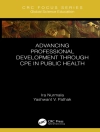Anglo-Jewry since 1066: Place, locality and memory is a study of the history and memory of Anglo-Jewry from medieval times to the present and is the first to explore the construction of identities, both Jewish and non-Jewish, in relation to the concept of place.
The introductory chapters provide a theoretical overview focusing on the nature of local studies then moves into a chronological frame, starting with medieval Winchester, moving to early modern Portsmouth and then chapters covering the evolution of Anglo-Jewry from emancipation to the twentieth century. Emphasis is placed on the impact on identities resulting from the complex relationship between migration (including transmigration) and settlement of minority groups. Drawing upon a wide range of approaches, including history, cultural and literary studies, geography, Jewish and ethnic and racial studies, Kushner uses extensive sources including novels, poems, art, travel literature, autobiographical writing, official documentation, newspapers and census data.
This book will appeal to scholars interested in Jewish studies and British history
Spis treści
Preface and acknowledgments
1. Placing the 'local’
2. Wessex tales/Yiddisher spiels
3. Winchester: Constructing the city of memories
4. Point of contestation: Jews in Portsmouth during the long eighteenth century
5. Jewish emancipation and after: Locality, brotherhood and the nature of tolerance
6. Settlement and migration from the 1850s to 1914
7. Historicizing the invisible: Transmigrancy, memory and local identities
8. Memory at the margins, matter out of place: Hidden narratives of Jewish settlement and movement in the interwar years
Conclusion
Index
O autorze
Tony Kushner is Professor in History and director of the Parkes Institute for the Study of Jewish/non-Jewish Relations at the University of Southampton












